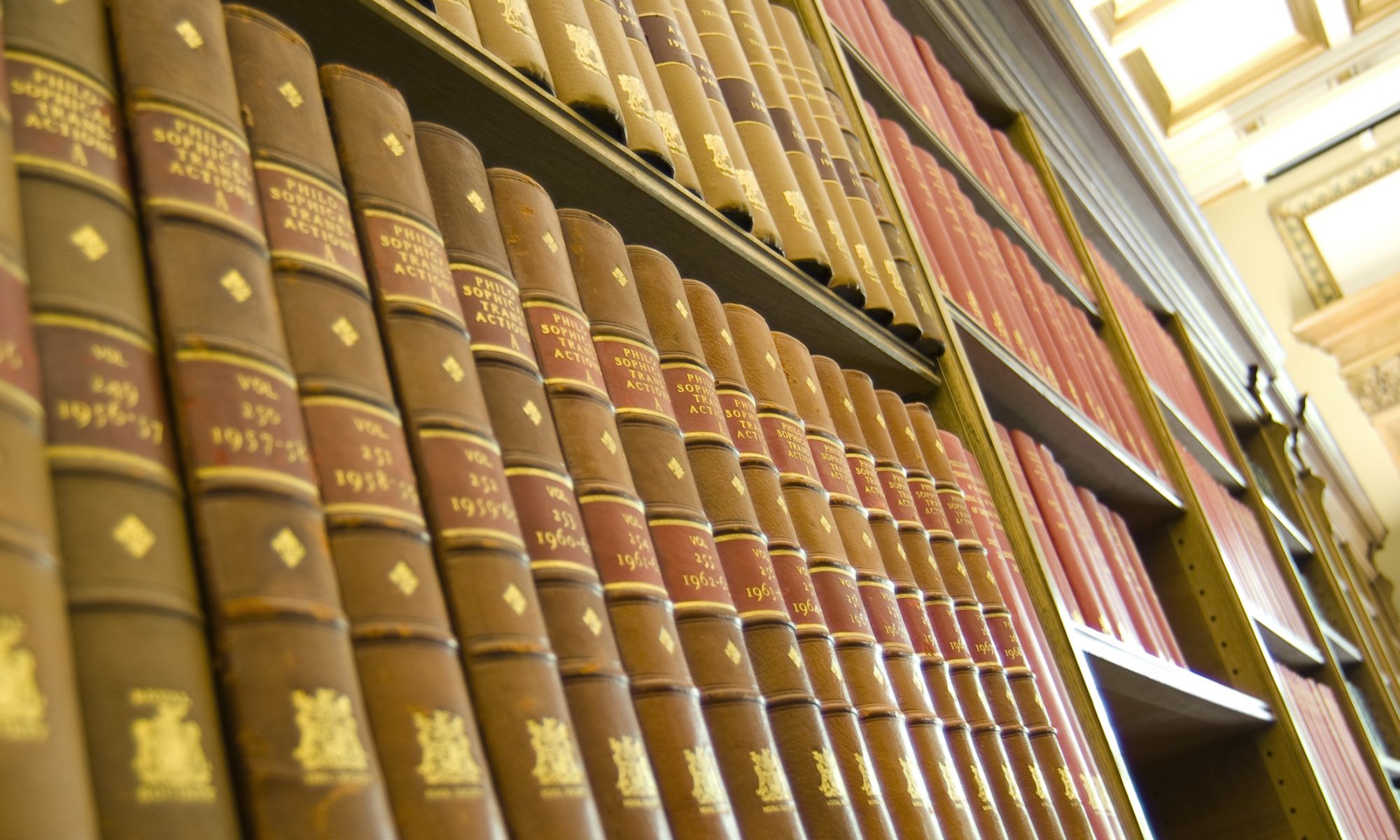Overview of frequently used words and phrases relevant to the entire history of the Philosophical Transactions.
Editor (prior to 1990; Secretary): From 1990 each of the Royal Society has had one dedicated editor, supported by a team of associate editors and office staff. Prior to this, the Physical and Biological Secretaries (members of Council of the Royal Society) acted as ‘editors’.
Communicator: Until 1990 every paper submitted to the Royal Society had to be communicated by a fellow of the Royal Society. There was a brief ‘experimental’ stop of this system in 1974, but after a year the communicator was again a required gatekeeper. Because communicators had to be fellows, all communicators were men until the entry of women to the fellowship in 1944.
Referee: Reads and comments on the paper, helped by a referee’s report form consisting of several questions. Over the years, referees have continued to be asked if the paper is sound science and original. The number of referees have varied, with one being most normal until the mid-twentieth century. Prior to this, the papers who went through two or three referees needed further opinions because the first referee was not convinced. Today, most papers go through two referees, found through the Society’s vast online network (outsorced) of scientists.
Committee of papers: In 1752 the Society took over the Philosophical Transactions. The journal would henceforth be published “for the sole use and benefit of this Society”; and editorial control was exercised through the Committee of Papers. The Committee were fellows and mostly based its judgements on which papers to publish and which to decline on the 300 to 500-word abstracts of papers.
Council: The governing body of the Royal Society, consisting of between 20 and 24 fellows. Chaired by the President (currently Sir Venki Ramakrishnan) and among its members are also four Officers with special roles (Treasurer, Foreign, Physical and Biological). Ordinary members serve for three years, Presidents and Officers serve for up to five years. Further information about the current Council members can be found here.
Head of publishing: A relatively new role coinciding with the makeover of the Royal Society journals in the late 1980s/early 1990s. Symptomatic of the increased independence of publishing within the Society. Oversees the Publishing Operations, finances and policy. Currently Dr Stuart Taylor.
Office staff: In the twentieth century, the Royal Society has relied on paid office staff to support its fellows and their work. For example, in the mid-sixties there were around 70 office staff members, but most of them had nothing to do with publications. Roles related to publishing includes copy-editors, marketing and sales staff, online copy-editors, and library staff.
Profit versus surplus: The Royal Society is a charity, and can thus not explicitly chase profit. It does, however, currently have a large surplus in its publishing account. This is a relatively new state of affairs. During most of its history, the publications made a loss for the Society, and substantial rise in surplus has only been seen in the last 30 years.
Distribution and exchange/gifts: Throughout its history as a publisher, the Royal Society has sent copies of its journals to other countries, learned societies and charities. In the twentieth century the list of recipients declined rapidly, as several large culls of the free distribution and exchange lists were made in the 1930s, 1950s and 1990s. Today, the Society will grant free access to low-income countries, ensuring that scientists can read its journals online.
Royal Society: A learned society for knowledge, founded 1660. Granted a Royal Charter under King Charles II. Based in London, Carlton House Terrace. Under the terms of its founding Charter the Society enjoyed the privilege of licensing books for printing on its own authority, without reference to the civil or ecclesiastical authorities whose job it was to screen printed matter for politically seditious or religiously heterodox material in Restoration London. This new licensing regime was introduced in 1662, a few months before the grant of the Society’s Charter, and among other effects it dramatically curtailed the trade in printed periodical news that had flourished during the Wars of the Three Kingdoms and the Interregnum. Philosophical Transactions was only the second licensed periodical of the Restoration.
Sectional Committees: Committees consisting of fellows in specific disciplines, such as mathematics. In 1976 it was decided that the practice of referring to the Chairman of the Sectional Committees for choice of referees be replaced by having Associate Editors instead. Associate Editors were appointed by Council after consultation with the Sectional Committees.
President: The elected leader of the Society. Currently biochemist Sir Venkatraman Ramakrishnan.
Treasurer: Member of Council with financial remit for Society. Currently Professor Andy Hopper.
Assistant Secretary (from 2000s, Executive Director): The person in charge for running the Society on a day to day basis. Some have been more involved in publishing than others, for example David Christie Martin in the 1950s. Currently Julie Maxton.
